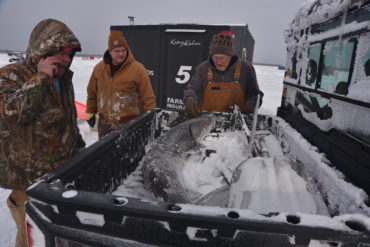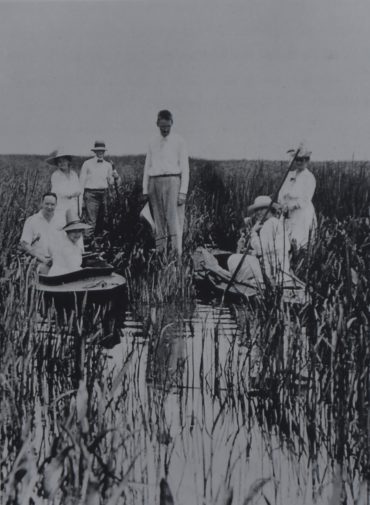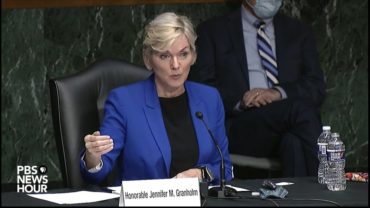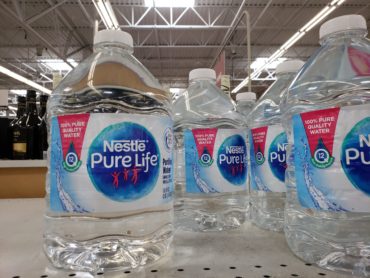-
 Fish, Birds and AnimalsHistory and CultureJames ProffittLatest NewsMichiganNewsRecreational Hunting and FishingSturgeon
Fish, Birds and AnimalsHistory and CultureJames ProffittLatest NewsMichiganNewsRecreational Hunting and FishingSturgeonShort Season: Sturgeon spearing plays big role in conservation efforts for the ancient fish
-This year, sturgeon season on Michigan’s Black Lake lasted just over two hours.
-
 DetroitEnbridge Line 5 and Other PipelinesEnergy, Clean Energy, Ethanol and FrackingFeature DetroitJohn HartigLatest NewsMichiganNewsWater Quality and Restoration Efforts
DetroitEnbridge Line 5 and Other PipelinesEnergy, Clean Energy, Ethanol and FrackingFeature DetroitJohn HartigLatest NewsMichiganNewsWater Quality and Restoration EffortsGreat Lakes Moment: From the Rouge River to Persian Gulf, oil spill cleanups are handled by a Detroit company
-Marine Pollution Control was founded in Detroit in 1967 as the first oil spill cleanup company in the Great Lakes and one of the very first in the nation.
-
 ClevelandFeature ClevelandFish, Birds and AnimalsJames ProffittLatest NewsNewsOhioRecreational Hunting and FishingResearch, Data and TechnologyScience, Technology, Research
ClevelandFeature ClevelandFish, Birds and AnimalsJames ProffittLatest NewsNewsOhioRecreational Hunting and FishingResearch, Data and TechnologyScience, Technology, ResearchWinous Point: Conservation and research play key roles in history of one of the oldest hunting clubs
-While hunting has been a hallmark of the Winous Point Shooting Club for more than 150 years, its true nature leans more toward conservation – especially since the creation of the Winous Point Marsh Conservancy two decades ago.
-
 Andrew ReevesBudgetDrinking WaterInfrastructureLatest NewsNewsOntarioPolitics, Policy, Environmental JusticeQuebecU.S. and Canadian Federal Governments
Andrew ReevesBudgetDrinking WaterInfrastructureLatest NewsNewsOntarioPolitics, Policy, Environmental JusticeQuebecU.S. and Canadian Federal GovernmentsCross-border Concerns: Biden administration a new opportunity for Canadian cooperation over Great Lakes
-What could future stewardship in the Great Lakes look like for Canada and the new U.S. administration?
-
 Drinking WaterGroundwater ContaminationIllinoisKathy JohnsonLatest NewsMichiganNewsOntarioResearch, Data and TechnologyScience, Technology, ResearchWater Quality and Restoration Efforts
Drinking WaterGroundwater ContaminationIllinoisKathy JohnsonLatest NewsMichiganNewsOntarioResearch, Data and TechnologyScience, Technology, ResearchWater Quality and Restoration EffortsRoad Salt: Researchers look at vegetables and juices for alternatives to salt
-Great Lakes residents depend on road salt to reach their destinations safely in the winter, but that safety places a heavy burden on freshwater ecosystems.






